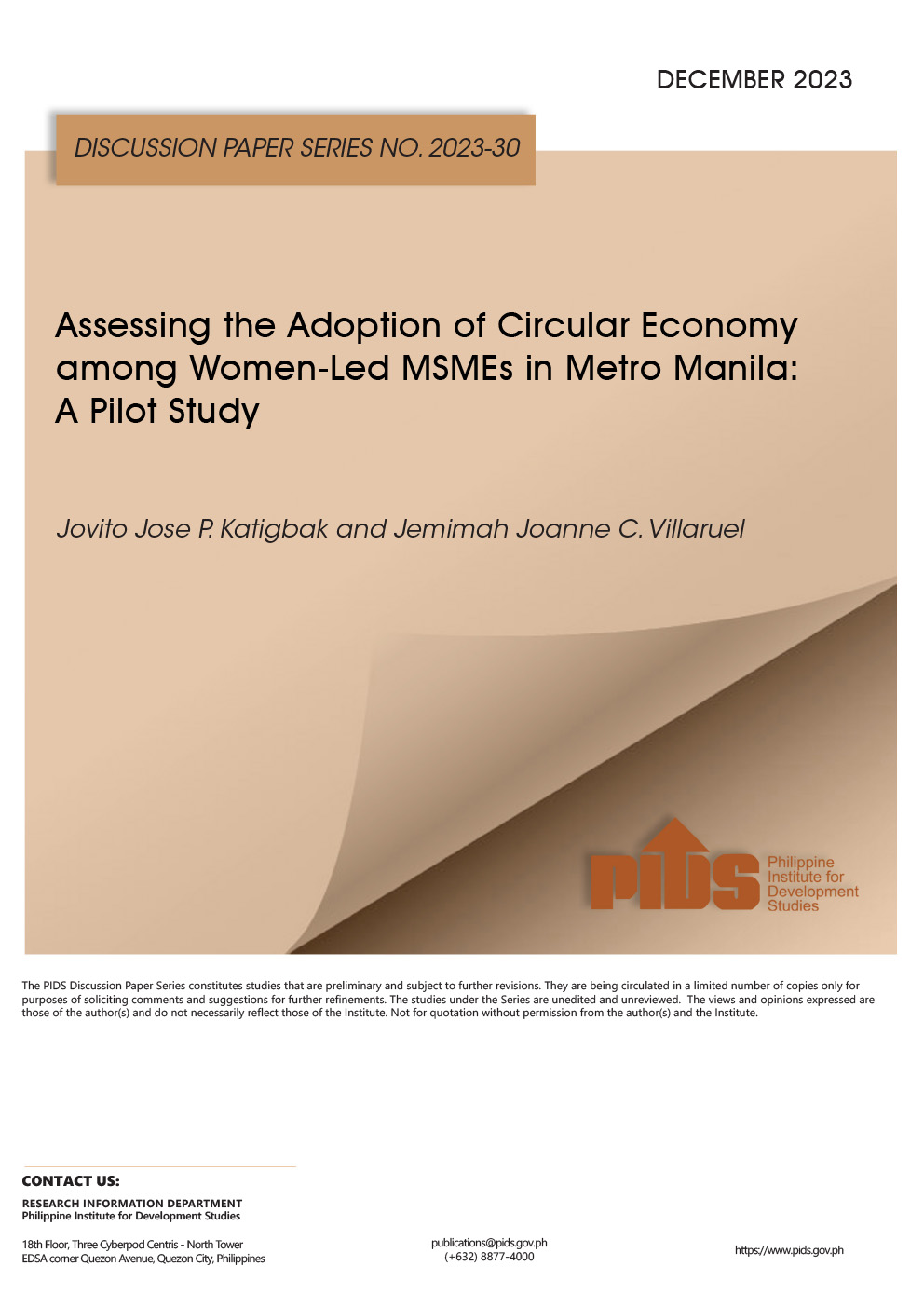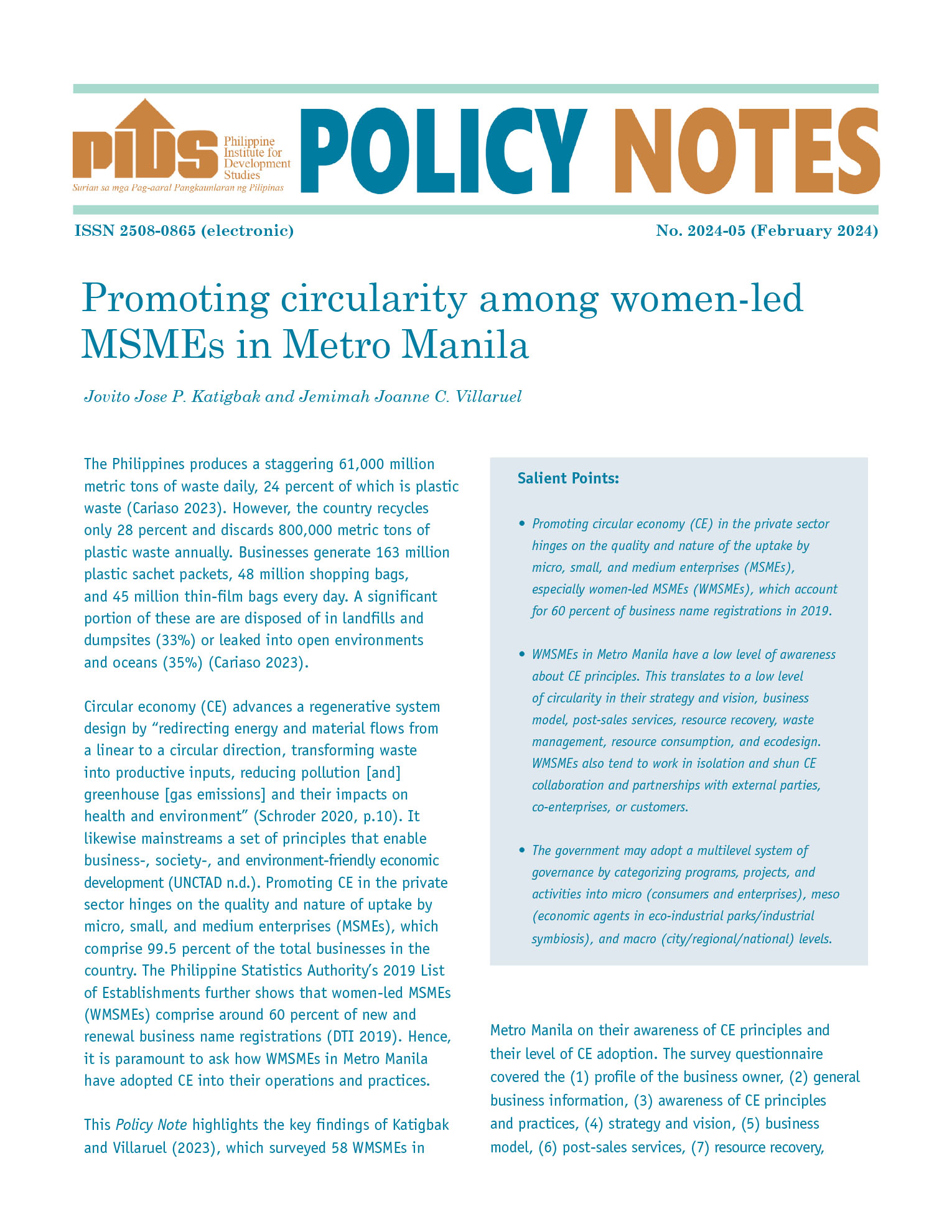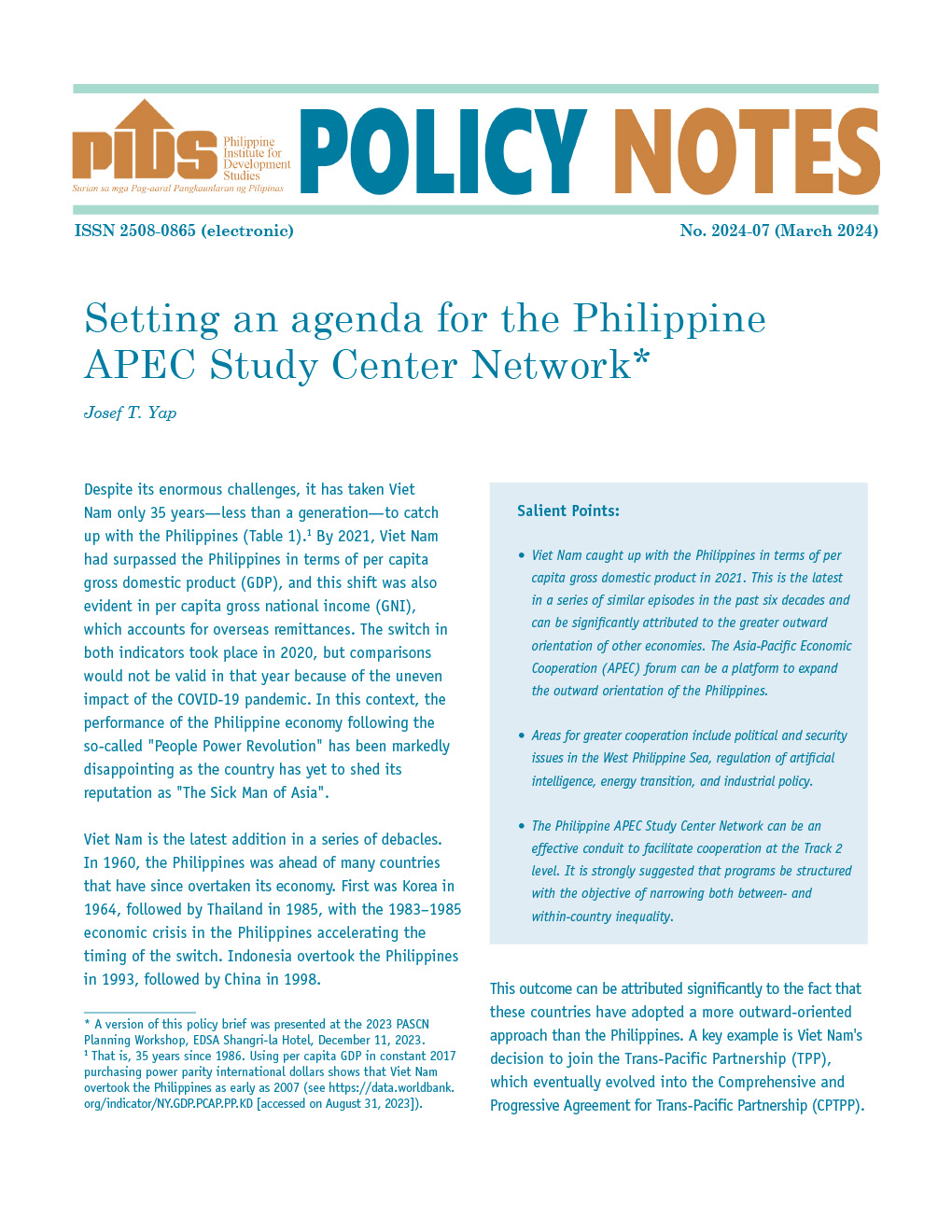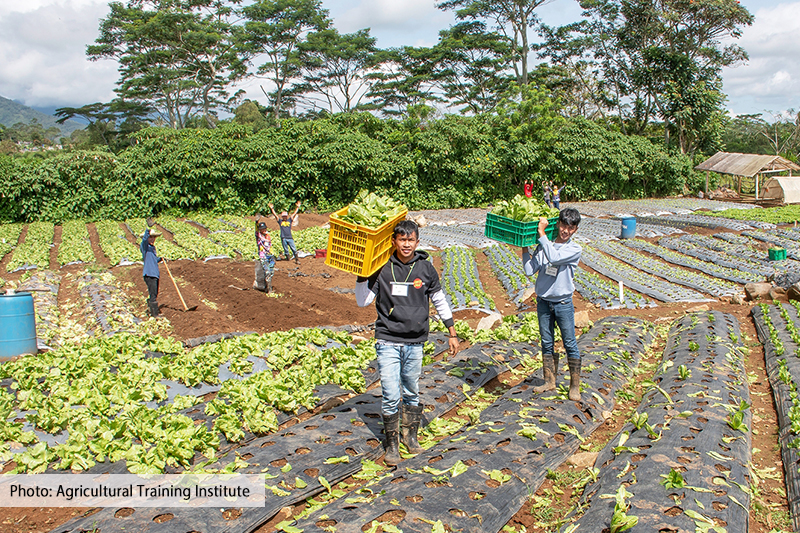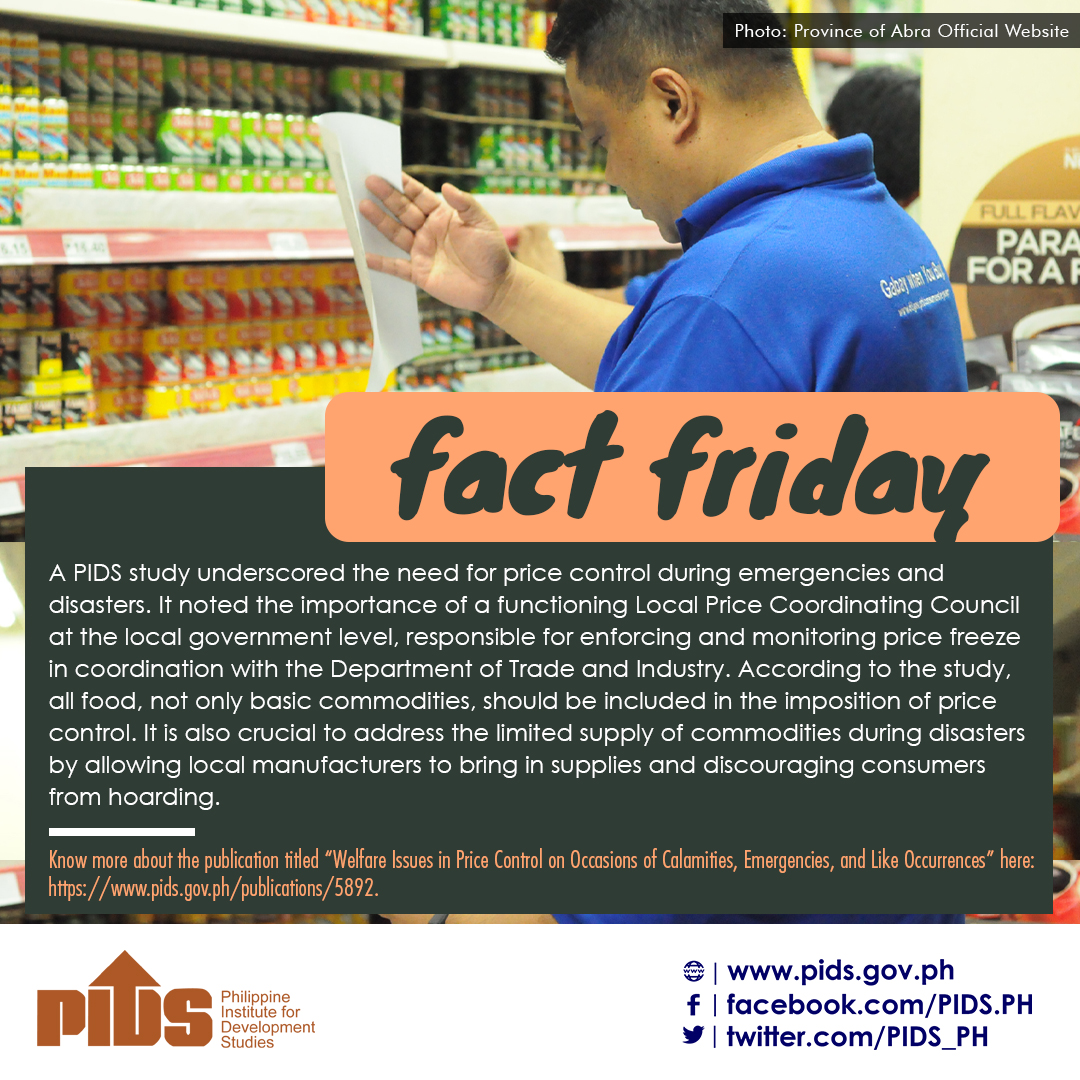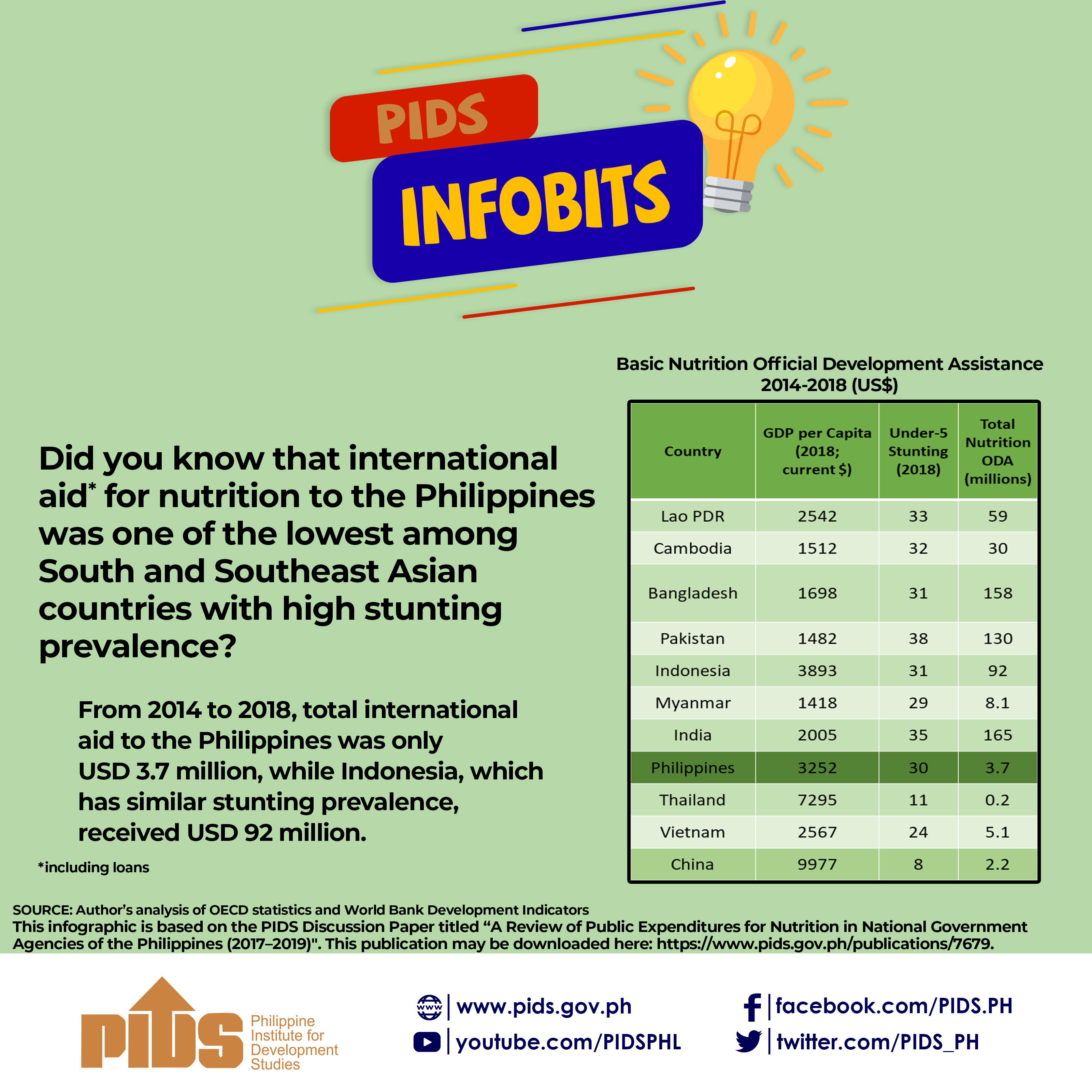MANILA, Philippines - Member economies of the Asia Pacific Economic Cooperation (APEC) should institute programs to help small and medium enterprises (SMEs) be resilient to natural disasters, state think tank Philippine Institute for Development Studies (PIDS) said.
The Philippines, in particular, should develop a disaster response strategy that will cover local and business plans, especially when 98 percent of enterprises are SMEs, the PIDS added.
PIDS senior research fellow Marife Ballesteros said disasters can compromise capital, supply chains, product markets, and labor, and in turn, business continuity and recovery.
"SMES are more vulnerable (than large enterprises) because they have limited coping mechanisms. SMEs usually have no or limited disaster insurance and limited access to credit, and most of them have no business continuity, emergency management, or disaster preparedness plans,” she said in her presentation at the 2015 APEC Study Centers Consortium Conference titled ‘Building Philippine MSMEs’ Resilience to Natural Disasters’ last week.
SMEs, considered engines of growth and employment in the APEC region, comprise over 97 percent of businesses and provide more than half of the workers in the region.
However, the 21 APEC member-countries are prone to intense natural disasters, experiencing over 70 percent of global natural disasters.
Ballesteros suggested a cooperation scheme to strengthen supply chain resilience in the region.
"SMEs should continue to build partnerships with other multinational organizations inside and outside of the APEC region, especially in the areas of information sharing and promotion of regional resiliency assessment programs,” she said.
"APEC member economies can also have dialogues, capacity-building activities, and cross collaboration in resource and technology sharing such as in hazard mapping and information technology infrastructure,” the PIDS research fellow added.
In the Philippines, the government has a well-developed policy framework and action plans for disaster risk reduction and management (DRRM), centered on search, rescue, evacuation, and relief operations, but lacks support programs for SMEs during calamities.
"Restoration of economic activities is handled only in the medium to long term as part of the rehabilitation efforts. There is also no strategic programs to operationalize action plans for SMEs and no small business development centers to address disruption and needs,” Ballesteros said.
The PIDS fellow recommended the establishment of key transport hubs and strategic communication systems that take into consideration extreme weather events.
She also highlighted the need for pre-disaster agreements as disruption of public sector operations and services can occur during times of calamities.
This could be the formation of networks or partnerships between national and local, and public and private entities, and the adoption of flexible regulations on labor as well as laws on importation and exportation.
In addition, government must support the development of financial security instruments such as catastrophic insurance, micro insurance, or a business disaster fund, Ballesteros said.
She pointed out that there is insufficient recovery funds for farm-based and urban-based small industries and the absence of specific policies for workers’ protection in times of calamities.//

